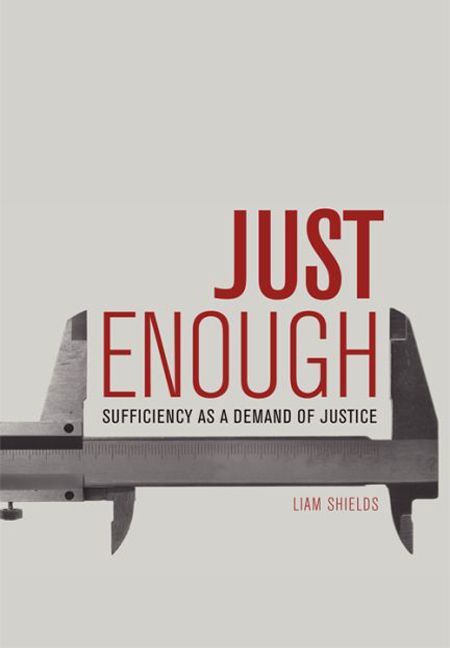1 - Politics and Distributive Justice
Published online by Cambridge University Press: 20 April 2017
Summary
Ours is a world of shortage and excess. Some people do not have enough food and water to live on. Others do not pay enough tax. At the same time some people have much more than enough food and wealth, and some people even pay too much tax. A failure to secure enough of some goods is relevant to the moral appraisal of our world, including our actions and the design of our social, legal and economic institutions. It is often the case that we should ensure that people have enough of some goods.
The idea of sufficiency is the subject of this book, which provides a clarification and defence of sufficiency as a demand of social justice and draws out its implications for some practical debates, such as those concerning educational provision, childrearing and our obligations to the global poor. Prior to any deeper analysis of sufficiency, and its possible role(s) in practical debates, I must say something about the background to the debates that I am addressing and how sufficiency and other ideas about social justice fit into them.
Politics and Distributive Justice
Political philosophers are interested in questions of justice. They are interested in what justice demands of individuals and social institutions. These questions are essentially a matter of evaluating political subject matter, which on the broadest understanding includes individual actions in the private sphere and also the design of institutions. It is understood that the appropriate standard for assessment is one of justice. To adapt the words of John Rawls, beliefs should be true and societies should be just. If beliefs are not true, then we should change them. If societies are not just, then we should change them too. To know what kinds of change should occur and to evaluate whether societies, including existing ones, are as they should be, we require an account of what justice demands. Only then can we see if our society measures up to it.
Evaluating the actions of politicians and governments is a popular pastime outside of the academy. People regularly pass judgement on who we should vote for, what the laws should be and how the tax burden should be shared. Such evaluations are popular partly because we realise that they are important. How the tax burden is shared really matters to us.
- Type
- Chapter
- Information
- Just EnoughSufficiency as a Demand of Justice, pp. 1 - 14Publisher: Edinburgh University PressPrint publication year: 2016



